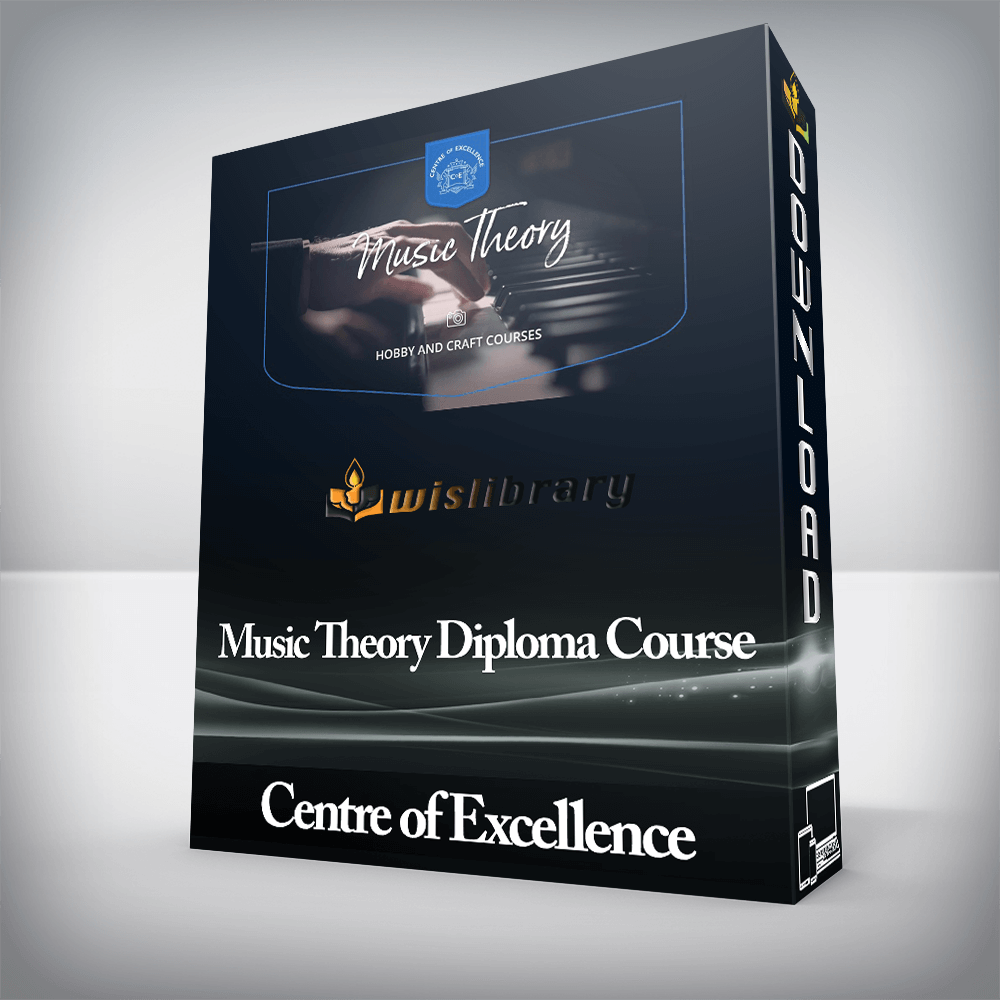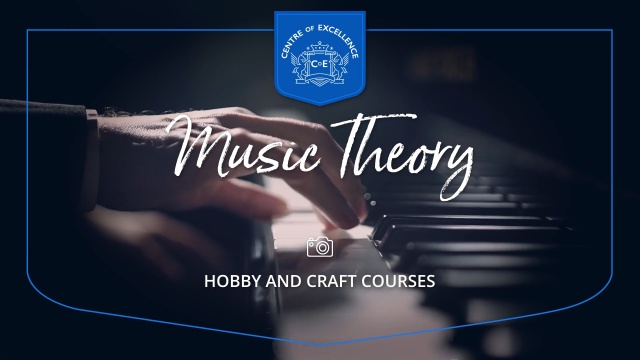

This course will help you to decipher the language used to describe the intoxicating combination of art…

Music exists, first and foremost, in the soul, mind and body. It is something we feel before we understand it. Your introduction to the wonderful world of music theory, this course will help you to decipher the language used to describe the intoxicating combination of art and science that is music.
You’ll be guided through the fundamental underpinnings of modern western music theory and the building blocks used to create melodies and chords, leaving you well-prepared to tackle any piece that you might encounter in your development as a musician.
You’ll learn the 12 notes of the musical alphabet, be able to differentiate between the two systems that exist for writing music in treble and bass clefs, understand the rhythmic values of notes and discover many rhythmic concepts.
You’ll explore the major and natural minor scales, learn how to write both generic and specific intervals on the stave, and become familiar with the diatonic triads of major and minor keys.
The course provides a detailed analysis of the role played by seventh chords in western music theory, how to construct major seventh, minor seventh and dominant seventh chords, and the role of seventh chords in major and minor scales.
An introduction to the concept of modes in western music theory is also included.
By studying this course, you will:
What will I learn on the course?
Module 1: Reading Music
Module 2: Rhythm and Note Duration
Module 3: Scales, Intervals and Triads
Module 4: Understanding Minor Scales
Module 5: Generic and Specific Intervals
Module 6: Understanding Diatonic Triads
Module 7: The Diatonic Triads of Minor Keys
Module 8: Understanding Seventh Chords
Module 9: Diatonic Sevenths for Minor Keys
Module 10: An Introduction to Modes

If you’ve never studied music theory before or need a refresh of the fundamentals, this is your course. It provides an overview of the elementary concepts that a beginner needs to master before delving deeper into music theory.
By the end of the Music Theory Diploma Course, you will be well-equipped with the fundamental knowledge necessary to continue learning about music theory, having covered a wide range of essential musical concepts from staves, scales and time signatures to triads, seventh chords and modes.
There are no reviews yet.
You must be <a href="https://wislibrary.org/my-account/">logged in</a> to post a review.